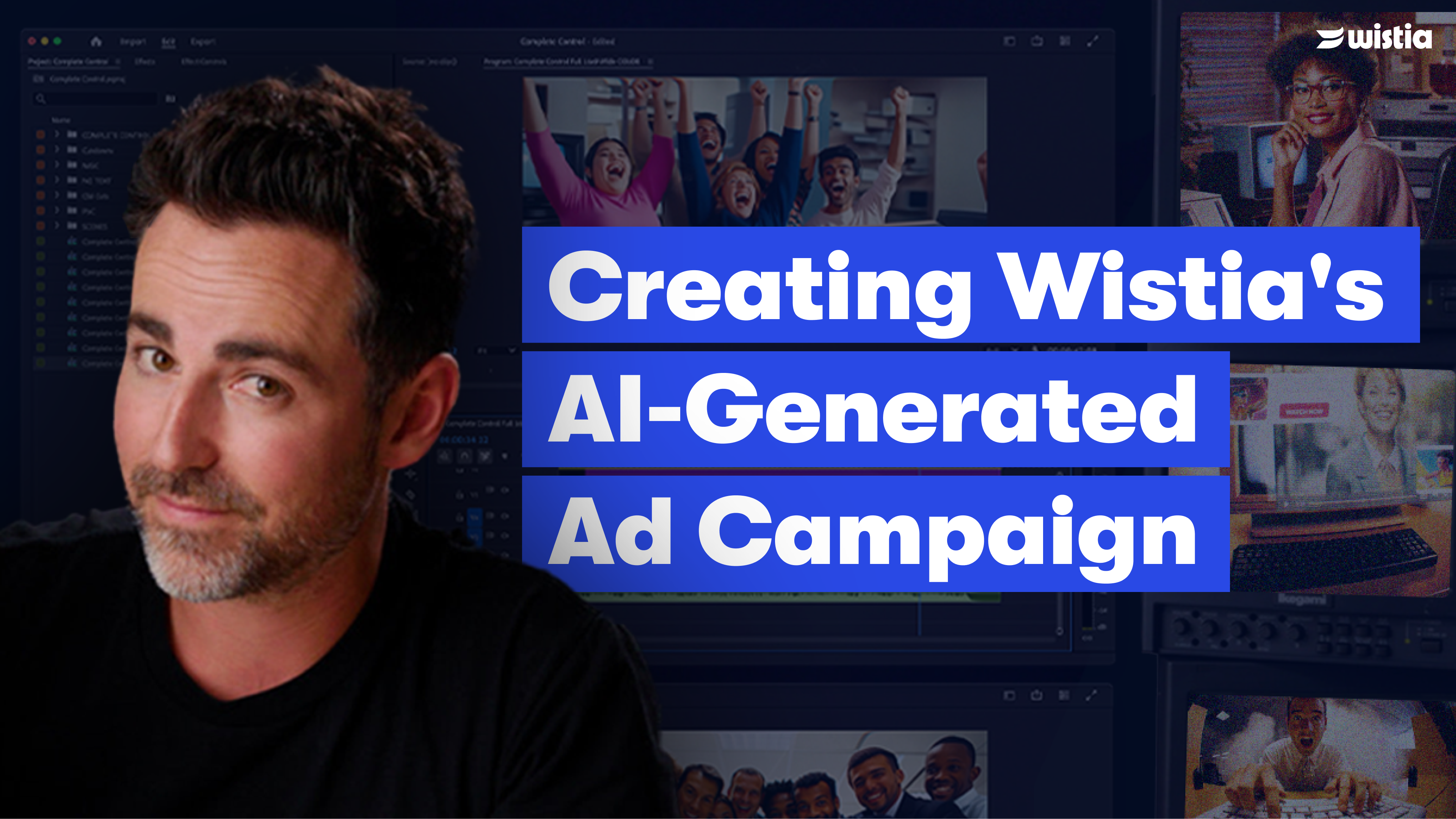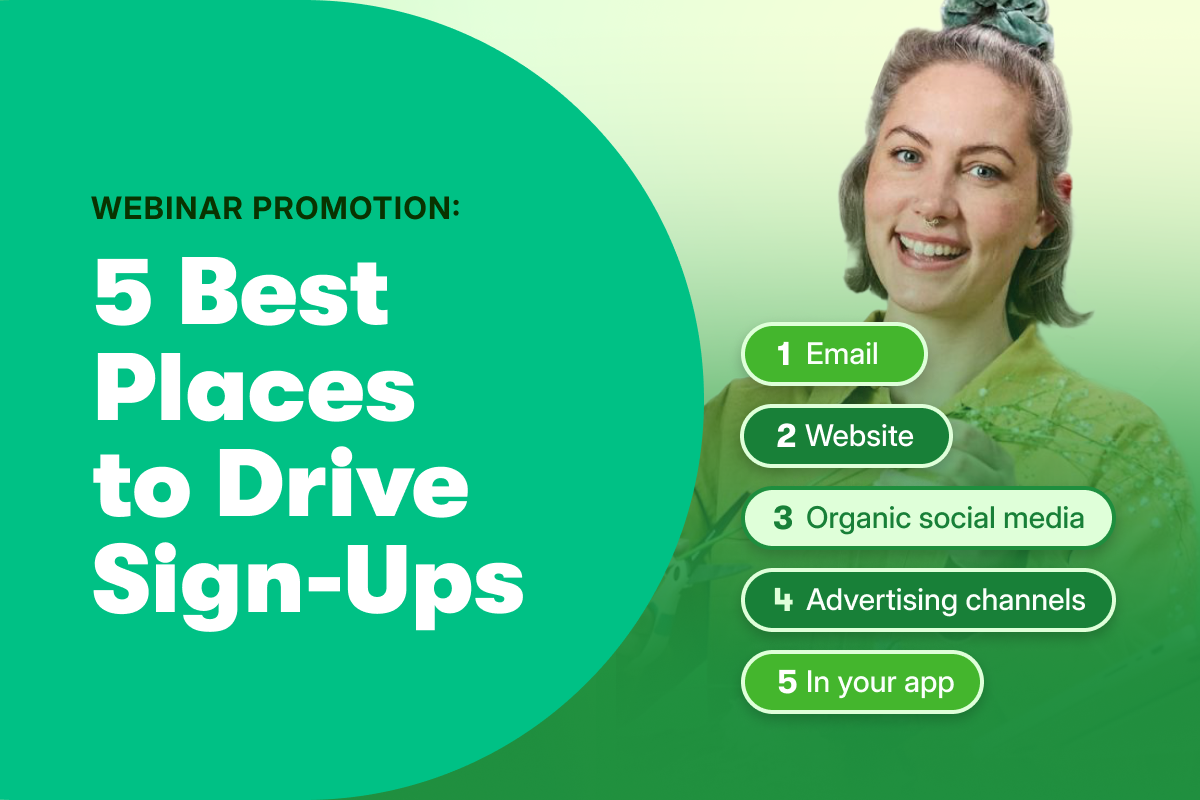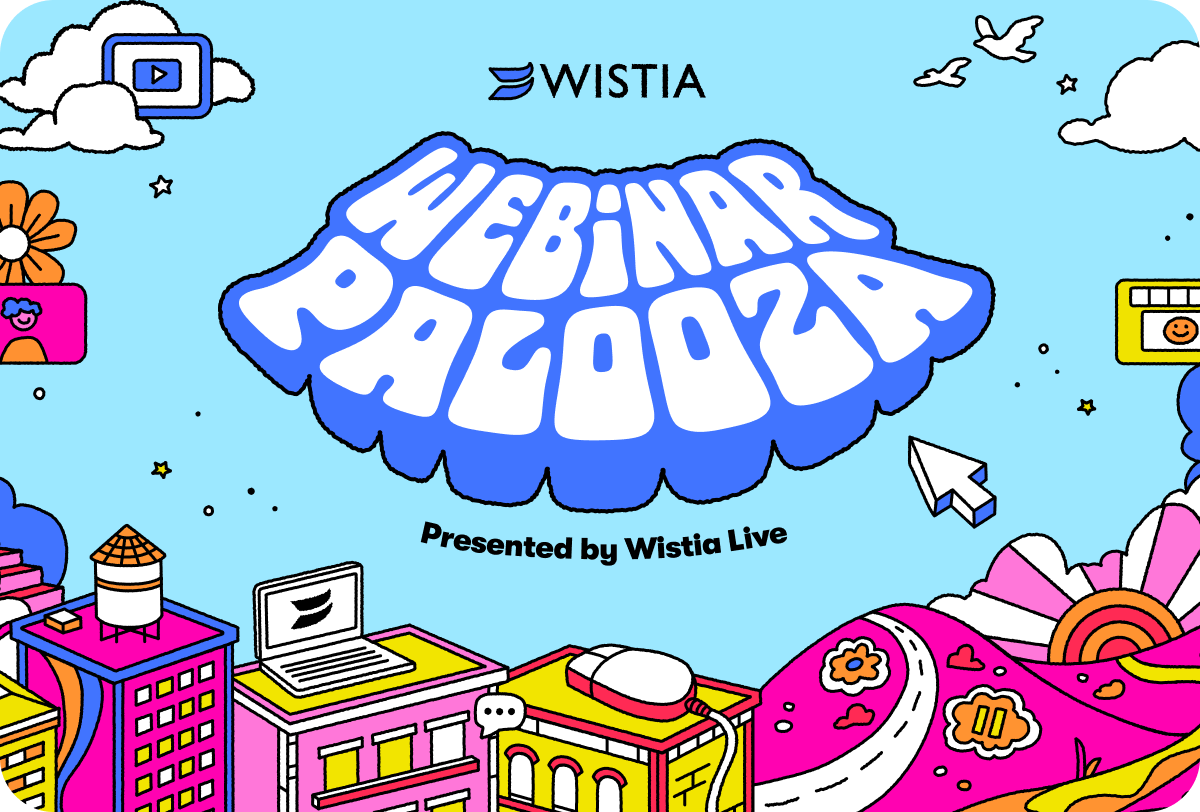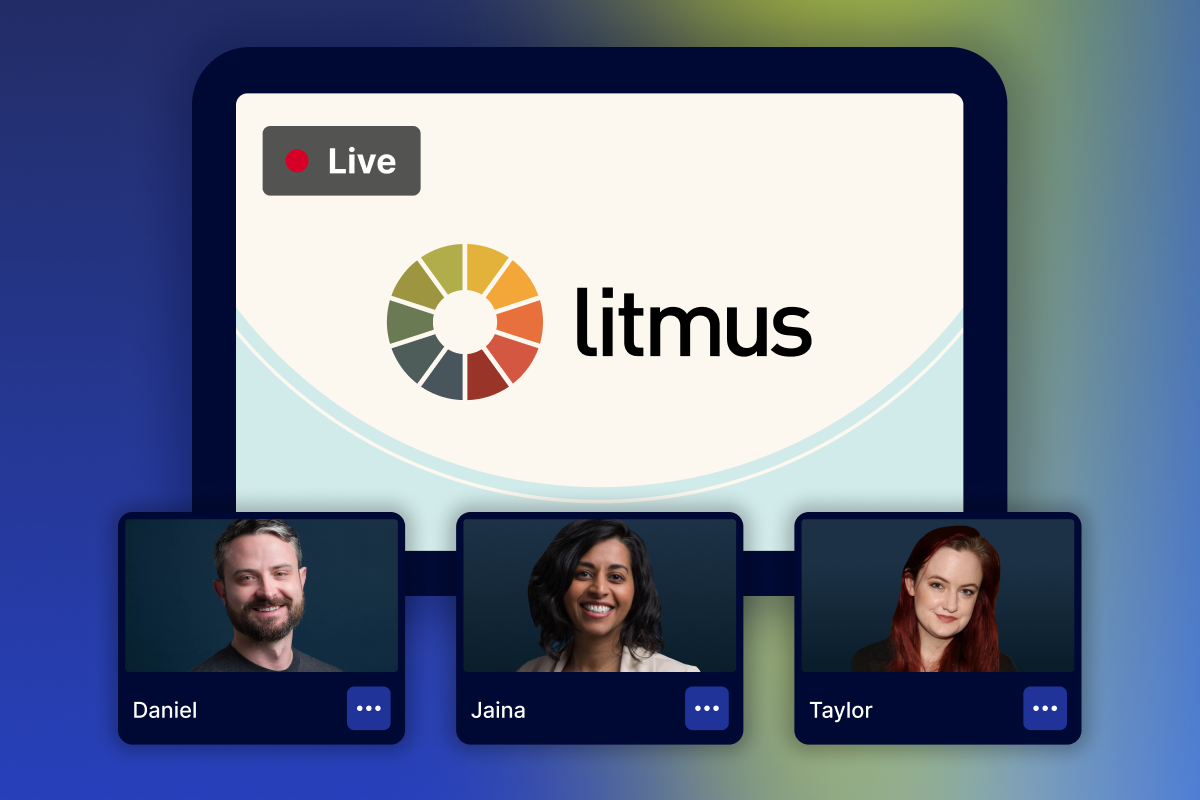Get Found: Improve The Discoverability of Your Show with Podcast SEO
November 6, 2020
Topic tags
Congratulations on starting your podcasting journey. The hardest part, just getting started, is over! Now, it’s time to focus on the fun parts — making great audio content and engaging your audience.
One of the biggest challenges marketers and podcasters face is growing their audience. And, while we are big fans of focusing on the quality — not quantity — of fans and followers, there’s no questioning the importance of finding your niche and connecting with them in meaningful ways.
“While we are big fans of focusing on the quality — not quantity — of fans and followers, there’s no questioning the importance of finding your niche and connecting with them in meaningful ways.”
Podcast search engine optimization (SEO) is a rapidly evolving field. In this post, we’ll take a deep dive into building a podcast SEO strategy and explore how you can optimize your show for organic search performance to enhance discoverability. We’ll also share real examples from our very own podcast, Talking Too Loud. Let’s go!
What Is “SEO”?
For anyone unfamiliar with the term, “SEO” stands for “search engine optimization.” SEO is a well-known digital marketing tactic to improve content performance online without using advertising dollars to boost performance.
In the context of this article, we’ll discuss tactics to improve how your podcast or show performs specifically in search engines. Keep in mind, podcasts in general, are a relatively new marketing channel, so the concept of podcast SEO is also very new.
“Keep in mind, podcasts in general, are a relatively new marketing channel, so the concept of podcast SEO is also very new.”
Podcast SEO Prep
Before you get started, it’s important to have a specific goal in mind. Are you trying to compete competitively in a non-branded space? Are you optimizing for general show or brand queries? What do the search engine result pages (SERPs) look like for your target? How competitive is the space you’re targeting? Does your target align with search intent?
For podcasts specifically, this last question — search intent — is critical. It’s unlikely that your show will appear for broad queries like “digital marketing tips.” However, a target like “top digital marketing podcasts” would be more in line with what someone is searching for — a podcast on a specific topic.
And that’s just for your show as a whole; you should follow this same thought process for episode-level research as well. For example, if you have an episode interviewing a well-known thought leader, include that name in your target. Of course, be mindful if this person has their own show that might muddy the waters.
It’s also important to keep expectations in line with the reality that podcasts are relatively new! And many people aren’t yet relying heavily on search engines to find new shows; a word-of-mouth recommendation from a friend or plug from a show someone already listens to is far more likely to produce a net-new listener than a Google search.
Your primary goal for podcast SEO should first be to make sure your show and episodes appear for searches that include your brand or the word “podcast” — like “talking too loud podcast” or “talking too loud wistia.” From there, you can branch out and expand your targets to things that don’t necessarily include your brand, like “top podcasts for entrepreneurs” or “best business interview shows.”
With expectations and goals in mind, let’s dive into some more tactical tips on how to get started.
Keyword research
Depending on your podcast goals and the level of effort you’re willing to put forth, keyword research might be a worthwhile investment for your show. This research could also be used to help inform some of the more broad positioning and messaging about your show.
Here are a few things to look for when deciding on a target keyword or phrase:
- What type of podcast are people searching for? This might include some research around podcast topics, like “content marketing podcasts” or “podcasts for entrepreneurs.” This could also be a useful gauge for how saturated a particular topic is or isn’t.
- How are people searching for podcasts? What types of questions or phrases do people use when looking for new shows? This will help you determine relevant keywords to target.
- Why are people searching for this? What is your audience hoping to get out of finding a new podcast? To learn something new? To feel inspired? Uncovering the real intent and end goal of your audience will help you align your positioning and messaging.
- What’s the search volume? How competitive is the keyword? The more search volume, the more competitive the SERP. Keep in mind — search queries related to your targets will likely be very low, and that’s ok! Quality over quantity, remember? Folks searching for these low-volume keywords are very qualified for the content you’re producing.
- Can your content compete? While your podcast shouldn’t have trouble competing in a branded space, this consideration is important if and when you want to get more aggressive and target broad search terms. Do some research on these SERPs and what shows are presented. Is your podcast realistically a good fit for this space?
This sounds like a lot, we know. But it really boils down to understanding your podcast, understanding your audience, and bridging that gap. How would you approach finding this content on Google? What words or phrases would you use?
For a deeper analysis, try these handy keyword research tools:
- SEMrush
- Ahrefs
- Moz
- Google Keyword Planner
- Google Trends
Your marketing team may or may not already use one or more of these podcast SEO tools. If you’re starting from scratch, check out Google’s array of free tools, like some of the ones mentioned above.
-
Get your podcast indexed by google
This step is essential on both a general show level and for individual episodes. Have you noticed the individual episode embeds directly within search results in some of the examples we’ve shown? Google now supports this functionality (with a few caveats), and you’ll definitely want to optimize your show and episodes to appear here. The good news is that Google has plenty of documentation to help you get started.
First and foremost, you need to get your hosted podcast on Google. Podcast hosts may or may not offer this functionality (good news — Wistia does!), so be sure to check whether or not your podcast platform of choice will pass along your RSS feed appropriately.
By syncing your feed with Google, you’ll be able to present your podcast to a much larger audience. This integration feeds your show to Google search results, the Google Podcasts app, Google Home speaker system, and more (which is outside of the scope of what we’re discussing today but good to know in general).
How can you track if your episodes are being indexed? Well, Google just launched a new tool to help showrunners manage their podcasts in one convenient place. Meet, Google Podcast Manager. This new dashboard is your one-stop-shop to managing your podcast exposure and performance in Google.
-
Show optimization
At this level, we’re really looking to improve the performance of your show in general. Does your podcast website or Channel show up for branded queries? Are you listed in relevant carousels that might appear for more broad show terms that you’re targeting?
Podcast name and branding
Search engines are smart enough to sniff out keyword stuffing, like naming your show “Digital Marketing Tips Daily With Digital Marketing Expert Joe Schmoe.” And having an independent brand is a great overall strategy to being keyword-first. By adding in your keyword targets naturally throughout your show copy and branding, you’ll increase association with those targets and resonate more clearly with your target audience.
For example, For Talking Too Loud, we are targeting entrepreneurs and brand-builders. We reflect this in our show boilerplate copy with “On this podcast, Chris Savage, Wistia’s CEO and loudest talker, takes you inside the minds of entrepreneurs as they share the hilarious, informative, and most challenging aspects of building more human brands.”
We could have named the show something more keyword-forward, like “Brand-Building and Entrepreneurship Tips with Chris Savage.” But, we wanted to tell more of a story with the name and really lean into the show’s core concept: What gets business leaders “talking too loud” inside and outside of work. We included Chris’s name in the show (it is his show, after all) to build on his authority and increase the show’s association with Wistia. And, Talking Too Loud is short, snappy, and easy to remember.
Have a dedicated podcast website or webpage
Having a dedicated podcast website or at least a portion of your website dedicated to the podcast is essential for having a strong search engine presence. Without this, podcast distribution sites, like Stitcher or Apple, will rank highly for your own branded show queries. This takes traffic away from your site and directly to third-parties.
And, having a podcast website or webpage gives listeners a stronger connection with your brand and introduces them to all of your other show content. This also enables you to capture engaged listeners’ info to serve them even more show news, like new episode alerts, exclusive behind-the-scenes content, and more.
You can see this with our show, Talking Too Loud. The Wistia Channel ranks first for the query, followed by third party apps below.
-
Episode optimization
At this level, we’re focused on improving the performance of individual show episodes. Is the episode indexed on Google? Does the episode show up for specific episode-related queries? Ideally, your keyword or target phrase should appear naturally in your episode title, title tag, meta description, and organically throughout the show (and, therefore, the show transcript and/or show notes). And remember — standard on-page SEO best practices still apply; each episode page should only have one focus keyword.
Transcripts/episode show notes
Say it louder for the people in the back: transcripts are essential for podcast SEO. As savvy as search engines have become, they aren’t yet smart enough to listen to and understand your podcast audio content. Therefore, they need something else to go by, and that something is written text. And, transcripts provide an accessible show experience for the humans that actually engage with your podcast.
There are plenty of affordable options (including Wistia!) that offer transcription services, and most major podcast hosts support transcript uploads. Transcripts should be a part of your ongoing podcast process, just like creating a show outline and editing your new episode.
But wait — what about show notes? What’s the difference between notes and a transcript? Should I have both, or one or the other? Well, like most things, this depends.
A transcript is a literal script of everything said during a podcast episode — the full rundown. Show notes, on the other hand, are often a stripped-down version of this. Show notes typically focus on the key takeaways from the episode and include helpful information like links to things referenced in the show, contact info for show guests, etc.
Our advice: If your podcast host offers both, use both! Bare minimum, have a complete transcript ready to go for each episode.
Blog/written content
Your website’s blog is another natural place to cross-promote your podcast. Blogs often carry more authority than a net new podcast page, so cross-linking is great for sharing that authority.
What content should you write to support your podcast? Are episode recaps a good idea? This is a tricky question as it really depends on your overall content strategy.
One thing we’ve struggled with is getting search engines to index our pages based on our priority. For example, the Wistia blog has hundreds and thousands of articles spanning the past 10+ years. That’s a lot of content! And that content carries a lot of weight.
We’ve done episode recaps for shows in the past where the blog post ends up outranking our show channel, which is where we really want to drive folks to watch and engage with our show content. Whoops!
For us, showcasing our Channels product and providing our audience with an exceptional listening/viewing experience is a top priority, so we always try to drive folks to the show Channel.
That’s why for Talking Too Loud, we are taking a different approach. Instead of writing and sharing episode recaps, we’re focusing on more theme-based and behind-the-scenes content. This content might not “perform” well if you just consider pure search volume, but the intent is fundamentally different. We want to showcase a different side of the show, connect listeners with our hosts and the team here at Wistia, and empower brands to embrace podcasting to build brand affinity — which is much different from a pure organic show awareness goal.
However, your goal might be different. If your goal is to attract as many listeners and gain as much exposure via natural search as possible, episode recaps might be a great fit. The key is to consider how you want your show presented and how you want people to listen or engage.
-
There you have it, our comprehensive guide to podcast SEO. We hope these SEO tips come in handy! Remember to ground your expectations and focus on driving value for show listeners. Your end goal should be to make it easy for folks to find and fall in love with your podcast.






